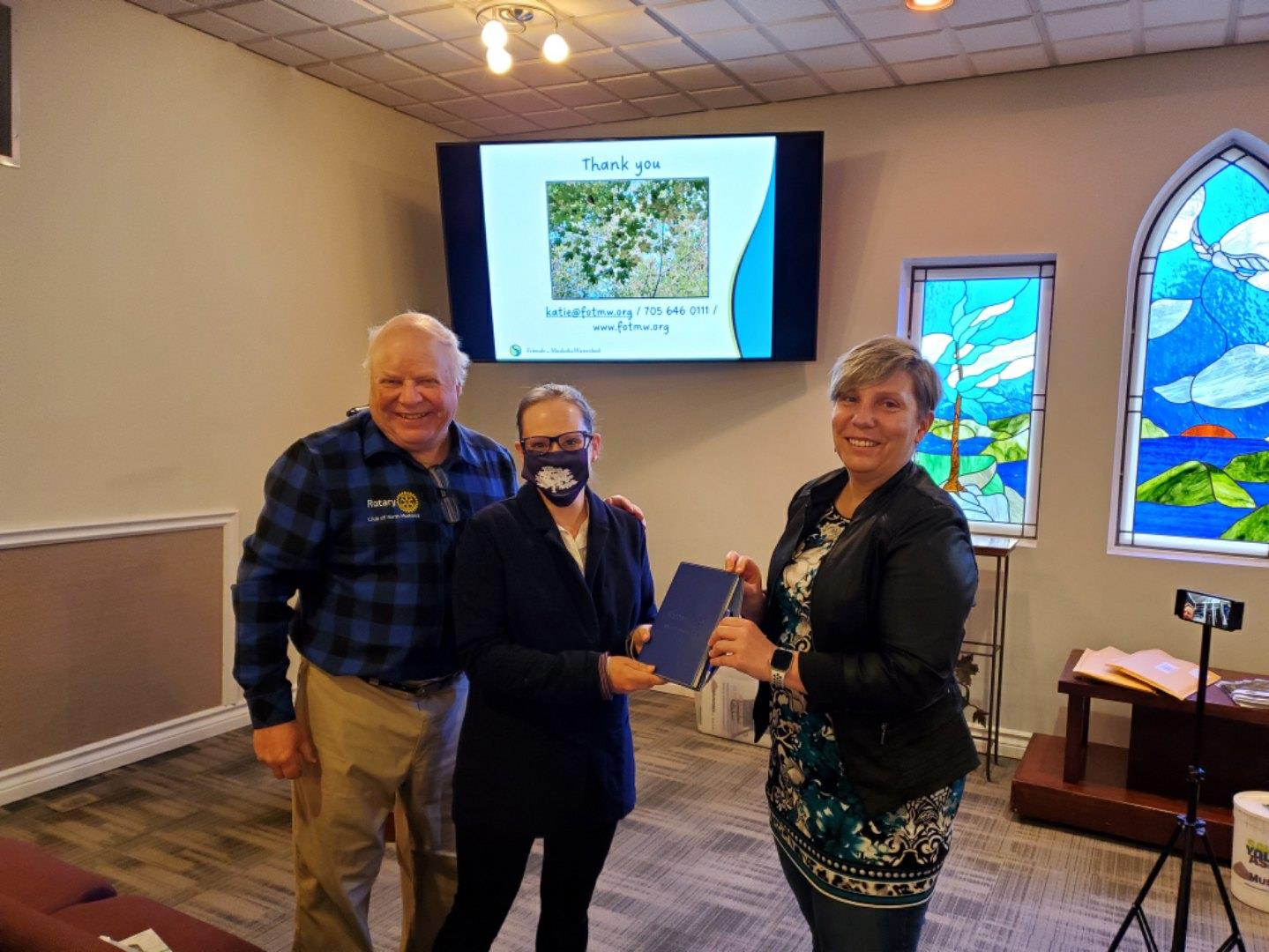
Rotarians were on the edge of their seats as Katie Paroschy, citizen science coordinator for the Friends of the Muskoka Watershed, discussed efforts underway to reverse calcium depletion in Muskoka's soil and water, and how community members can get involved.
"I found Katie’s presentation so interesting. I had no idea that lakes can experience calcium deficiencies (osteoporosis) from acid rain and that our daphnia population has plummeted," says Rotarian Cara. "It was really great to see data supporting the use of ash to bring up calcium levels in hardwood trees. ... It's also interesting to note that maple trees with ash produced a lot more sap, and it was more concentrated sugar."
The Friends of the Muskoka Watershed previously launched what is now called ASHMuskoka to demonstrate whether properly filtered wood ash collected from residential woodstoves could safely and effectively replenish calcium levels in Muskoka Watershed forests and, subsequently, its lakes to boost nutrient levels and ecological health. Community members were encouraged to donate their ash at depots across the district. Now, as early findings show positive effects, the initiative is expanding to encourage community members to join in the research further by taking properly prepared ash provided by the organization, spreading it on their properties based on specific guidelines, and recording data to track results.
Cara was one of the club members to volunteer following Katie's talk.
"I am still debating which trees to put my ash on, but I’ve got it narrowed down to two young maples or apple trees. I’m leaning toward a native tree, though," she says. "It is such an environmentally friendly, affordable option for people to make a difference in their local ecosystem. I wanted to be a citizen scientist because I want to contribute to the data for this project, while giving my trees a boost."
Rotarian Stacey also raised her hand to become a citizen scientist for the initiative.
"Katie’s presentation made me understand how fragile our ecosystem can be and how each and every one of us can play a part in improving its sustainability," says Stacey. "The citizen science project is an ingenious way to spread awareness, create community involvement, and help further research, while staying on a budget."
She added that she looks forward to the positive impact.
"I hope to use what I learned from this presentation to improve the health of the trees on my property and do my own experiment to see if the use of wood ash can help revive my slowly dying apple trees," she says.
President Suzanne and Rotarian Nick, who also happens to be Katie's proud father, thanked Katie for her engaging presentation and presented her with a small token of thanks in the form of a Rotary Club of North Muskoka notebook. Perhaps it will be useful for research notes!